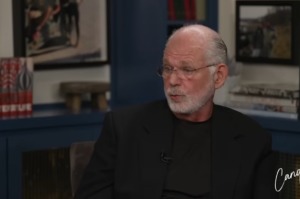Study Shows Young Pastors Take Different Approach in Shaping Church
According to Barna Research Group, the number of young senior pastors who were born from 1965-1983, which is also known as Baby Busters, has doubled in just two years from approximately 22,000 to more than 45,000 out of 324,000 Protestant senior pastors. The new study also observes the ways Buster pastors are starting to minister, which is very different from the methods of older Senior Pastors who were born during the period of Baby Boom.
Three adult generations are mentioned in the report. Baby Busters were born from 1965-1983. Baby Boomers were born from 1946-1964. Builders were born from 1927-1945. Mosaics were born from 1984-2002.
According to the report, the young pastors are adopting new creative ways to develop communication, education, and other various aspects within church.
David Kinnaman, Vice President of Barna Research and director of the study of young pastors, commented on the study:
“Young pastors are basically cutting and pasting from fresh ideas as well as from established wisdom to form a new, era-appropriate portrait of church leadership. A handful of the young leaders are making huge changes in their ministry approaches when compared to older pastors, but most Buster pastors are simply tinkering with the style – not the substance – of ministry,” Kinnanman said.
“Young pastors are actually less likely than average to say their church prioritizes community, missions, service, social action, or prayer,” Kinnanman continued, “……without increased emphasis on these areas, many churches – even those led by young pastors – will find it very difficult to appeal to young people who deeply desire relational authenticity, service to the poor and disadvantaged, globally minded activity, and spiritual depth through prayer.”
The report pointed out five most important findings that distinguish young pastors’ method of leading church from older pastors.
The first prominent change is communication. The reports shows that Buster pastors are more likely to use drama (32% to 21%); more likely to show movies, videos, and DVDs (30% to 21%); and more likely to tell stories (28% to 13%) in delivering gospel. They more often incorporate art, music, and interactive dialogue to receive attention from the younger generation and to attract them to the gospel. They also tend to more focus on communication environment.
Second, young pastors had different perspectives in how they describe their churches. Young pastors are more likely than Boomers to describe their churches as seeker-driven (45% to 33%) and as theologically conservative (93% to 80%), while less likely to depict their churches as fundamentalist (33% to 40%). Also they were more likely to state their primary skill in ministry as leadership, administration, or management. However, they rated themselves poorly in pastoring, shepherding, and counseling.
Third, young pastors are shown to be not as “theologically conservative” compare to the older pastors. Less than half of Buster pastors (46%) currently have a seminary degree, compared to two-thirds of Boomers (62%). Some pastors earn their degree later in life. The reason why many young pastors are avoiding seminary education is that they don’t find it to be necessary or relevant to their ministry because of the supportive mother church that provides well nurturing environment for the leaders.
Fourth, young pastors are shown to be more attentive to the influence of culture on youth today. They are less likely to believe the church has significant influence in the lives of youth than the older pastors.
Fifth, the study shows that young pastors are more interested in prioritizing ministry to families, youth, and children than are older pastors (46% to 30%). They also have more focus on spiritual growth, discipleship, and Bible study (37% to 27%). However both groups are equally like to prioritize teaching and preaching, evangelism, and worship.





























